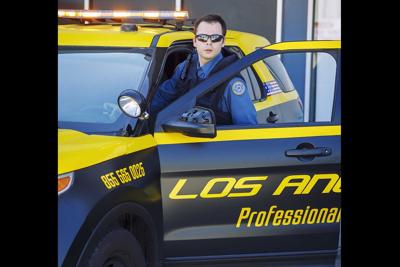Private security innovator aims to create safer communities

Los Angeles CA Aug 13 2020
The highly publicized deaths of individuals like George Floyd and Breonna Taylor, in addition to the recent protests, have shed light on police practices and violence, which has led many to demand reform and justice. In response to the communities’ pleas for police reform, private security innovator James Caspari is working to partner with the city of Los Angeles to help make communities safer.
“LAPD has been defunded by $150 million, and we can take over lower-level crimes for a fraction of that,” Caspari said. “We can free up police time and resources to allow them to focus on high-level crime. Ideally through this partnership, we would like for the city to designate a section of Los Angeles to my patrolmen and I for a little over a year as sort of a test run, allowing us to prove the value and effectiveness of our services.”
Caspari founded Downtown Los Angeles Patrol (DTLA Patrol) and Los Angeles Professional Security (LAPS) 10 years ago. DTLA Patrol operates mostly in Downtown LA, while LAPS operates within the county of Los Angeles and is equipped with a K-9 unit. Both provide professional security services to apartment buildings, large shopping centers, entertainment venues, national fast-food chains and other places. Services include everything from video monitoring and vacation watch to patrol and alarm response, and more.
“We have a duty to protect our clients; the police have no such duty,” Caspari pointed out. “We have more power than a police officer on private property. For example, if a business owner doesn’t want anyone on-site without a mask, we will enforce that along with any other rules. We also monitor cameras on clients’ property. If we see someone climb the fence and go inside, we will alert the police then search the building and arrest anyone inside, prepare a report and hand our arrestee over to local police. On public space we have zero authority.”
Caspari’s team consists of a dense network of male and female officers in the field who are trained in theft prevention, parking enforcement, vandalism control, gang suppression, transient eviction and more. All officers wear state-of-the-art Axon Body 3 cameras to promote transparency and accountability while on the job.
“You can’t sit or kneel on someone’s neck for 8 minutes and 46 seconds and think that is acceptable behavior,” Caspari said. “Our new model of law enforcement transparency will prevent tragic situations like this from happening again. If a wrongdoing is found, the officer will be suspended without pay and we will figure out what occurred. If there is no camera footage, we will automatically believe the victim. I believe in doing the right thing—transparency is key.”
As a preliminary step of the partnership with the city of LA, Caspari and his team would meet with the community in that sector to determine their role and expectations, including but not limited to how to be transparent, consequences for mistakes, negligence, gross misconduct and when to make contact. After taking over low-level crimes in LA, Caspari hopes to apply this new service in other markets that have a defunded police force. He also wants a federally regulated security force license that will grant his patrolmen advanced powers like the ability to take an arrestee to jail—something they are currently unable to do.
“If someone hits an employee at a fast-food chain with a metal pipe and crosses the street, we should be able to arrest him, but currently we can’t because he is off property,” said Caspari. “It’s unlikely in certain areas the police will respond, because they are too busy with high-level police work. Let us train at the academy and use the scenario simulator at the station. Right now, it’s very segregated. I believe together we can make Los Angeles a safer place for everyone with transparency.”
There are various properties in Los Angeles that LAPS patrols, and as a result, police have stopped or slowed patrol to those areas because they no longer receive low-level crime calls. Caspari and his team deter crime on surrounding properties as well because they have so many officers in the area, and the lack of police presence has turned them into the only local law enforcement doing low-level policing.
“LAPS has seen great success and reinvested it right into the equipment, the technology, the officer, the training, the dispatch team and more,” said Caspari. “So why not expand and let it be publicly funded? We want to help the cities that need us most. We would offer the community transparency far beyond the current transparency model of law enforcement. We can set the tone for a new wave of law enforcement. This is security by the people for the people.”



